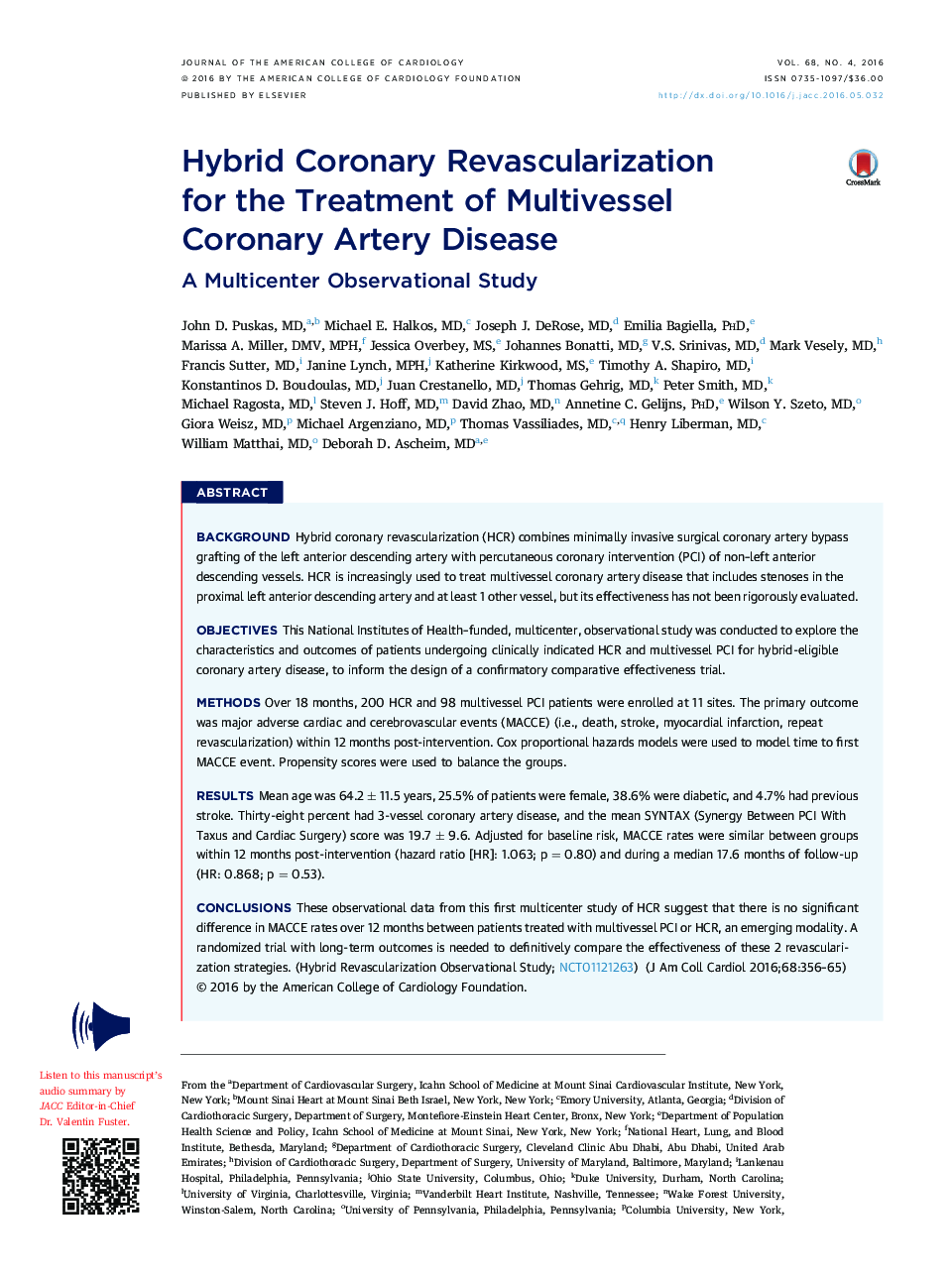| Article ID | Journal | Published Year | Pages | File Type |
|---|---|---|---|---|
| 5981476 | Journal of the American College of Cardiology | 2016 | 10 Pages |
BackgroundHybrid coronary revascularization (HCR) combines minimally invasive surgical coronary artery bypass grafting of the left anterior descending artery with percutaneous coronary intervention (PCI) of non-left anterior descending vessels. HCR is increasingly used to treat multivessel coronary artery disease that includes stenoses in the proximal left anterior descending artery and at least 1 other vessel, but its effectiveness has not been rigorously evaluated.ObjectivesThis National Institutes of Health-funded, multicenter, observational study was conducted to explore the characteristics and outcomes of patients undergoing clinically indicated HCR and multivessel PCI for hybrid-eligible coronary artery disease, to inform the design of a confirmatory comparative effectiveness trial.MethodsOver 18 months, 200 HCR and 98 multivessel PCI patients were enrolled at 11 sites. The primary outcome was major adverse cardiac and cerebrovascular events (MACCE) (i.e., death, stroke, myocardial infarction, repeat revascularization) within 12 months post-intervention. Cox proportional hazards models were used to model time to first MACCE event. Propensity scores were used to balance the groups.ResultsMean age was 64.2 ± 11.5 years, 25.5% of patients were female, 38.6% were diabetic, and 4.7% had previous stroke. Thirty-eight percent had 3-vessel coronary artery disease, and the mean SYNTAX (Synergy Between PCI With Taxus and Cardiac Surgery) score was 19.7 ± 9.6. Adjusted for baseline risk, MACCE rates were similar between groups within 12 months post-intervention (hazard ratio [HR]: 1.063; p = 0.80) and during a median 17.6 months of follow-up (HR: 0.868; p = 0.53).ConclusionsThese observational data from this first multicenter study of HCR suggest that there is no significant difference in MACCE rates over 12 months between patients treated with multivessel PCI or HCR, an emerging modality. A randomized trial with long-term outcomes is needed to definitively compare the effectiveness of these 2 revascularization strategies. (Hybrid Revascularization Observational Study; NCT01121263)
